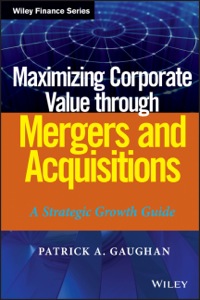Question
Brief one of the Supreme Court opinions at the end of chapter 6. Content should contain the following: A brief consists of the following: Citation
Brief one of the Supreme Court opinions at the end of chapter 6. Content should contain the following:
- A brief consists of the following:
- Citation Name and citation of the case.
- Facts describe what happened. Describe the facts of the case. What is the lawsuit about?
- Issue - What is the key legal issue of the case?
- Decision What was the courts decision?
- Reason - What was its reasoning behind the decision?
- You should also give your opinion on the decision. Explain why you agree or disagree with the decision. Your opinion should be based on legal analysis.
- You can brief a case in 1-1.5 pages. You can use more (or less) space, as you need. However, remember, the idea of a brief is to provide the key details.
- Your brief should comply with the format in 1) above: citation, facts, issue, decision, reason.
SUPREME COURT OPINIONS Unit 6 case United States v. Lopez 514 U.S. 549, (1995). CHIEF JUSTICE REHNQUIST delivered the opinion of the Court. In the Gun-Free School Zones Act of 1990, Congress made it a federal offense for any individual knowingly to possess a firearm at a place that the individual knows, or has reasonable cause to believe, is a school zone. 18 U.S.C. 922(q)(1)(A). The Act neither regulates a commercial activity nor contains a requirement that the possession be connected in any way to interstate commerce. We hold that the Act exceeds the authority of Congress [t]o regulate Commerce . . . among the several States.... On March 10, 1992, respondent, who was then a 12th-grade student, arrived at Edison High School in San Antonio, Texas, carrying a concealed .38 caliber handgun and five bullets. Acting upon an anonymous tip, school authorities confronted respondent, who admitted that he was carrying the weapon. He was arrested and charged under Texas law with firearm possession on school premises. The next day, the state charges were dismissed after federal agents charged respondent by complaint with violating the Gun-Free School Zones Act of 1990. 18 U.S.C. 922(q)(1)(A).1... On appeal, respondent challenged his conviction based on his claim that 922(q) exceeded Congress power to legislate under the Commerce Clause. The Court of Appeals for the Fifth Circuit agreed and reversed respondents conviction. It held that, in light of what it characterized as insufficient congressional findings and legislative history, section 922(q), in the full reach of its terms, is invalid as beyond the power of Congress under the Commerce Clause. [W]e now affirm.... Jones & Laughlin Steel, Darby, and Wickard ushered in an era of Commerce Clause jurisprudence that greatly expanded the previously defined authority of Congress under that Clause. In part, this was a recognition of the great changes that had occurred in the way business was carried on in this country. Enterprises that had once been local or at most regional in nature had become national in scope. But the doctrinal change also reflected a view that earlier Commerce Clause cases artificially had constrained the authority of Congress to regulate interstate commerce. But even these modern-era precedents which have expanded congressional power under the Commerce Clause confirm that this power is subject to outer limits. In Jones & Laughlin Steel, the Court warned that the scope of the interstate commerce power must be considered in the light of our dual system of government and may not be extended so as to embrace effects upon interstate commerce so indirect and remote that to embrace them, in view of our complex society, would effective obliterate the distinction between what is national and what is local and create a completely centralized government. . . .2 Consistent with this structure, we have identified three broad categories of activity that Congress may regulate under its commerce power. Perez v. United States, supra. First, Congress may regulate the use of the channels of interstate commerce. See, e.g., Darby, Heart of Atlanta Motel. Second, Congress is empowered to regulate and protect the instrumentalities of interstate commerce, or persons or things in interstate commerce, even though the threat may come only from intrastate activities. See, e.g., Shreveport Rate Cases, Perez, supra.... 1. The term school zone is defined as in, or on the grounds of, a public, parochial or private school or within a distance of 1,000 feet from the grounds of a public, parochial or private school. 921(a)(25). 2. ... Heart of Atlanta Motel, Inc., 379 U.S. at 273, 85 S.Ct. at 366 ([W]hether particular operations affect interstate commerce sufficiently to come under the constitutional power of Congress to regulate them is ultimately a judicial rather than a legislative question, and can be settled finally only by this Court) (Black, J., concurring).
Step by Step Solution
There are 3 Steps involved in it
Step: 1

Get Instant Access to Expert-Tailored Solutions
See step-by-step solutions with expert insights and AI powered tools for academic success
Step: 2

Step: 3

Ace Your Homework with AI
Get the answers you need in no time with our AI-driven, step-by-step assistance
Get Started


